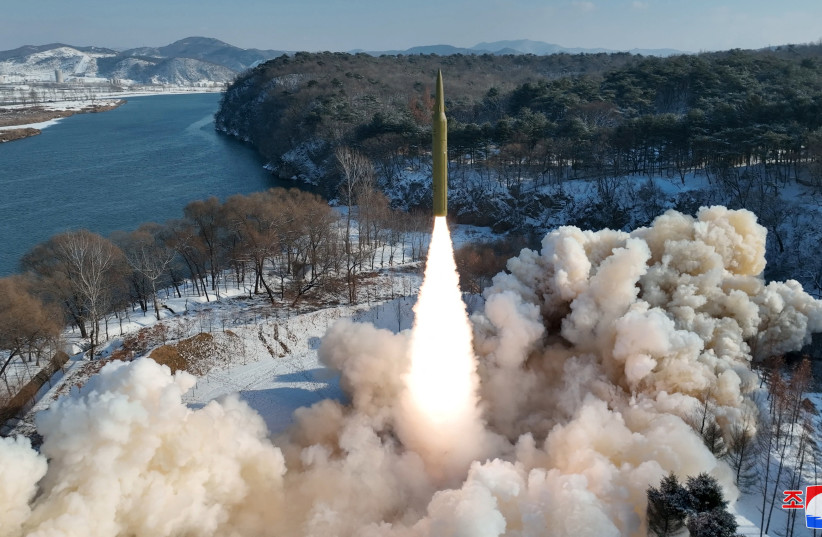NATO is concerned about support Russia could provide for North Korea's missile and nuclear programs, the alliance's head said on Tuesday as Russian President Vladimir Putin headed to the reclusive nuclear-armed country for the first time in 24 years.
Putin vowed on Tuesday to deepen trade and security ties with North Korea and to support it against the United States.
His state visit comes amid US accusations that North Korea has supplied "dozens of ballistic missiles and over 11,000 containers of munitions to Russia" for use in Ukraine.
NATO Secretary-General Jens Stoltenberg told a joint press conference after a meeting with US Secretary of State Antony Blinken that Russia's war in Ukraine was being propped up by China, North Korea and Iran, who all wanted to see the Western alliance fail.
"We are of course also concerned about the potential support that Russia provides to North Korea when it comes to supporting their missile and nuclear programs," Stoltenberg said.

He said this and China's support for Russia's war economy showed how security challenges in Europe were linked to Asia and added that next month's NATO summit in Washington would see a further strengthening of the alliance's partnerships with Australia, New Zealand, South Korea and Japan.
Stoltenberg said there needed to be "consequences" at some stage for China.
"They cannot continue to have normal trade relationships with countries in Europe and at the same time fuel the biggest war we have seen in Europe since the Second World War," he said.
Stoltenberg said it was too early to say what those consequences might be, "but it has to be an issue that we need to address because to continue as we do today is not viable."
Blinken: Putin getting desperate
Blinken said Putin's visit to North Korea was a sign of his "desperation" to strengthen relations with countries that can support his war in Ukraine.
Blinken added that China's support had enabled Russian to maintain its defense industrial base, supplying 70% of the machine tools Moscow is importing and 90% of the microelectronics. "That has to stop," he said.
Last week, US Deputy Secretary of State Kurt Campbell said Washington was concerned by what Russia would give North Korea in return for the weapons Pyongyang has supplied.
"Hard currency? Is it energy? Is it capabilities that allow them to advance their nuclear or missile products? We don't know. But we're concerned by that and watching carefully," he said.
The top US arms control official, Under Secretary of State Bonnie Jenkins, has said she believes North Korea is keen to acquire fighter aircraft, surface-to-air missiles, armored vehicles, ballistic missile production equipment or materials, and other advanced technologies from Russia.
